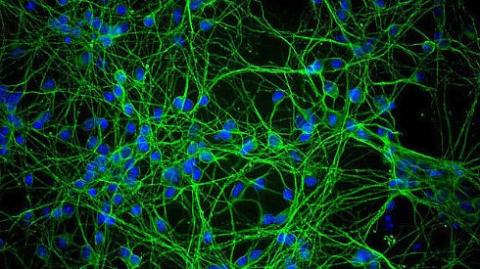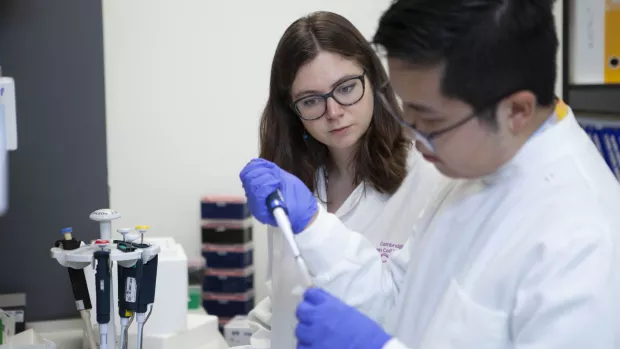The role of chemokines in nerve loss in MS

- Lead researcher:
- Professor Richard Reynolds
- Based at:
- Imperial College London
- MS Society funding:
- £282,279
- Status:
- Complete
About the project
The brain is surrounded by three outer layers that grouped together are known as the meninges. Chronic inflammation of the meninges appears to happen during the transition to progressive MS. Immune cells trapped in the meninges as a result of inflammation secrete toxic molecules into the brain which cause damage resulting in nerve loss.
When nerves are exposed to the toxic molecules from the meninges, in response they secrete molecules called chemokines which are thought to prevent further damage, but their role is not well understood. The aim of this project is to see whether the production of a particular chemokine changes in MS and if this is related to disease severity.
Currently very little is known about this chemokine other than there is more of it in people with progressive MS. The researchers will analyse the production of this chemokine from the nerves in response to toxic molecules. After this they will stop the production of the chemokine in the same toxic condition to see if this causes the nerves to become damaged more quickly.
If the chemokine is found to be produced in an attempt to protect the nerves, therapies to increase this response may be beneficial. If it is found to be damaging then a therapy to stop its action may be useful in progressive MS.
How will it help people with MS?
There are currently no treatments for progressive MS and this is largely because we don’t understand what causes it. This research will give an insight into the molecules that cause nerve damage in progressive MS and help develop new therapies for progressive MS.
The difference you can make
The race is on to find therapies that will slow progression. You can help speed up the process by helping to fund projects like this.




